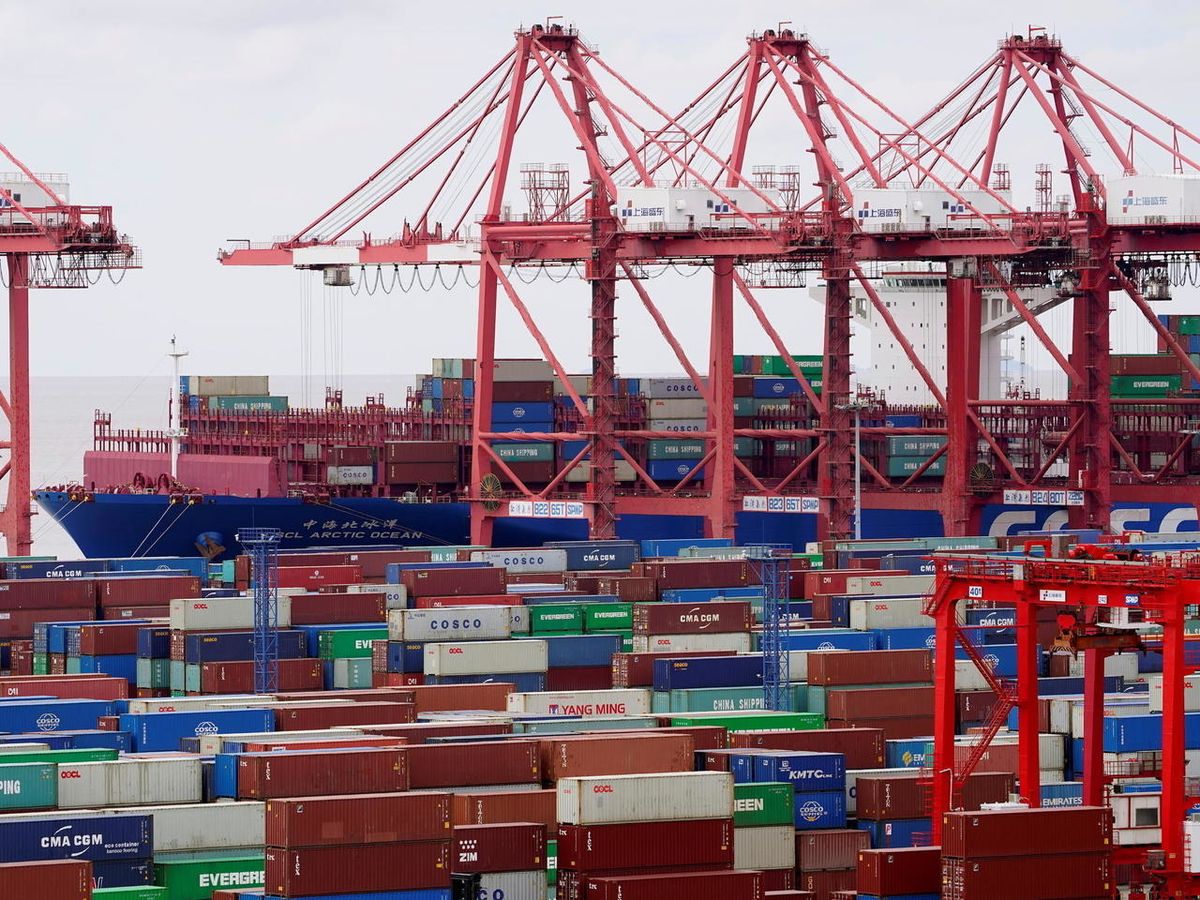America needs China in its battle to halt the COVID-19 pandemic

A few minutes every morning is all you need.
Stay up to date on the world's Headlines and Human Stories. It's fun, it's factual, it's fluff-free.
As the coronavirus spread more widely, the world began competing for a limited supply of resources, highlighting critical flaws in US manufacturing.
China has long served as the world’s manufacturing hub but the COVID-19 pandemic has only laid bare the United States’ intense reliance on China, as the US no longer has the capacity, proficiency, or manufacturing infrastructure to sustain itself.
Although China first gained prominence in the world economy as the global producer of toy parts and electronics, it is also the primary manufacturer of penicillin, antibiotics and pain medicines used across the globe. Likewise, the country is one of the leading producers of surgical masks and other crucial medical equipment.
In spite of America’s position as a leader in drug development and innovation, much of the manufacturing for these medications has moved abroad. The Food and Drug Administration (FDA) does not gather explicit data on the percentage of pharmaceuticals produced offshore, but it estimates that 72% of manufacturing facilities producing active pharmaceutical ingredients (API) in American drugs are located abroad, with 13% in China.
Furthermore, India, the world’s largest producer of generic medicine, depends on China for 80% of its API, according to industry data.
Britain’s Medicine and Healthcare Products Regulatory Agency and pharmaceutical analysts allege that China produces nearly half of the planet’s API.
Turn to Chinese manufacturing
It is undeniable that the shift to global manufacturing has had its upsides. It’s afforded better living standards, furthered the production of more effective pharmaceuticals and lifted more than one billion people out of poverty in the last 25 years.
However, the US has paid the price by relinquishing its manufacturing authority to China and leaving American cities that once manufactured pharmaceuticals impoverished.
Now, the coronavirus pandemic has shed light on the negative aspects of the US’ reliance on China.
Shortages of essential drugs in the US began in February, well before cases within the country approached their record-setting later levels. According to the FDA, this was the result of the widespread case numbers in Wuhan, the epicenter of the virus and a central manufacturing hub for antibiotics.
As the coronavirus spread more widely, the world began competing for a limited supply of resources, highlighting critical flaws in US manufacturing.
When N95 masks became a commodity, the Chinese government banned them from being exported and nationalized a factory dedicated to producing them. White House trade adviser Peter Navarro claimed that China also purchased 2.2 billion face masks between January and February from countries worldwide, leading to a shortage of such masks for US health care workers.
This came as no surprise to many experts. Rosemary Gibson, author of “China RX: Exposing the Risks of America’s Dependence on China for Medicine,” wrote in a 2019 article in Military Officer magazine (MOAA) that “In a global health crisis, the Chinese government would keep supplies for its people. The U.S. would stand in line behind other countries to buy essential drugs for its citizens.”
Gerald Commissiong, the chief executive officer of Todos Medical Ltd, told TMS that China had other advantages when it came to dealing with the pandemic.
“Because of their history with epidemics, China operates on an ever-ready basis, which is why certain provinces shut down so quickly, and why China was able to reopen so quickly after the pandemic began. This is also why China was able to treat patients with makeshift hospital wards when hospitals reached full capacity,” Commissiong stated.
“This ever-ready basis includes offering testing to the population at large, mass-producing PPE, and supporting a cultural mindset that already holds preventative medicine as a top priority.”
What’s more, many of the products that the US eventually received from China had defects.
In June, the US Department of Justice (DOJ) found a Chinese manufacturer guilty of producing masks that were ineffective at protecting health care workers. Reports found that the US was flooded with test kits from China that gave inaccurate readings and, after finding them to be potentially contaminated, the US was forced to recall millions of surgical gowns from China.
This poses an enormous problem for America, as the reliability of Chinese drug manufacturers has not always been dependable.
In July 2018, the FDA recalled blood pressure medicine taken by millions of Americans after finding it contained potentially cancer-causing chemicals used in the production of rocket fuel. The company was ultimately found to have manufactured a product containing more than 200 times the acceptable limit per pill.
International response
In July, the US International Development Finance Corp. granted a US$765 million government loan to Eastman Kodak Co., targeted at producing API for generic drugs within the US. The country is likely not the only one trying to shift production away from China. The pandemic has illustrated the risks of relying on China as a chief manufacturing hub and will presumably drive other companies to search for more suitable, cost-efficient alternatives.
Still, the odds are that companies that depend on China will face challenges in identifying markets that maintain the quality standards, logistics and supply chain to produce products at a competitive cost.
“The US lags behind China in the raw materials industry, and is legions behind China in medical technology,” says Commissiong.
Companies would need to embrace difficult short-term hurdles in order to shift toward a more sustainable future. And, while some companies have ultimately left China in response to tariffs imposed by former President Donald Trump, that has not led them to come to the US.
Instead, companies leaving China have frequently relocated to more manufacturing-friendly locations, such as Vietnam, India and Mexico.
Still, the US faces a difficult challenge if it wants to ensure an inexhaustible supply of lifesaving medication and medical equipment.
As Rosemary Gibson told The New York Times, “If China shut the door on exports of core components to make our medicines, within months our pharmacy shelves would become bare and our health care system would cease to function.”
“In the event of a natural disaster or global pandemic, then the United States will wait in line with every other country for essential medicines,” she said.
That said, China and the US have become inextricably linked after decades of trade and show little sign of true separation.
“With the new administration, there will be a resetting of relations," says Commissiong. “Biden knows that it is vital to take a tough stance on China with regards to their Human Rights Violations, but he also knows that the US would be in very dangerous waters without China’s leading production of medical supplies."
Have a tip or story? Get in touch with our reporters at tips@themilsource.com




Comments ()